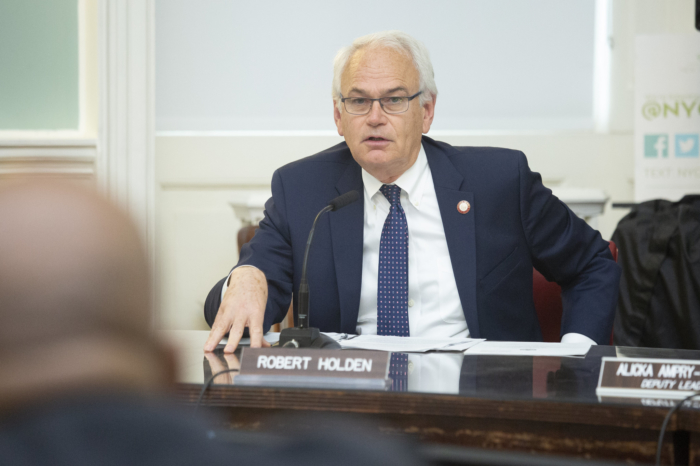By Tom Allon
We have heard many elected leaders lament that our country — and our wonderfully diverse city — has lost its middle class in recent years. Bringing it back seems to be the rallying cry that everyone agrees is important.
It seems to me that the term “middle class” has a pretty wide range, and that most people in our city probably fall into this category. If you buy the terminology of “Occupy Wall Street,” then society breaks down between the 1 percent and the remaining 99 percent. That means there is an “ultra upper class” and then there is “the rest of us.” Instead of a three-tiered look at society, this way breaks it down to just two tiers, “the haves” and the “have less.”
It seems that our government has in the past decade leaned in favor of “the haves” and that is why there is a perception of a shrinking “middle class.” Income inequality has widened, with CEOs and financial industry leaders making an ever-growing piece of the national pie. Tech industry start-ups have lavished gobs of money on enterprising entrepreneurs and so everyone under 30 these days seems to be working on developing a new app.
But we need to keep sight of the fact that there are three important things in society that are making it very difficult for working-class people to make ends meet. In many urban centers like New York, people spend more than 35 percent of their net income on housing. Even with Obamacare trying to bring down costs, health care coverage costs continue to spiral upward. And perhaps the most egregious problem stressing not just middle class parents, but also their children, is the outlandish cost of higher education.
Housing, health care, and education are the pillars of our society, and they shouldn’t be so expensive that working families feel that they will drown in debt in order to attain them.
Now, with the holiday season approaching, it is a good time for us all to take stock of our station in life and to count our blessings, even if we are not one of the one percent or one of “the haves.” If you are relatively healthy, and those in your family and circle of friends are healthy, then you are very lucky. If you have a roof overhead and food on the table, then you should consider yourself lucky. If you have a job that you look forward to each day and work with people who you trust and respect, then you are also very lucky.
If you have someone in your life who you can talk to about your triumphs and defeats and who loves you through all life’s ups and downs, then you are extra lucky. If you feel that your children and the next generation can benefit from your hard work to make a world better than the one you were born into, then you have an important purpose in life.
If those things mentioned here mean more to you than material wealth, then you are part of life’s “upper class.” You have figured out what matters in life and you have your priorities straight.
Being “middle class” is still certainly something many of us should aspire to, but it’s more than just about your income and material wealth. Being “middle class” should mean that you are content with your lot in life and that you are contributing to the betterment of society. Being “middle class” could mean that you recognize that life is not a “zero sum” game and that you can make things better for those around you in many ways that have nothing to do with money or possessions.
It seems to me that “middle class values” are probably something that we should all strive for: from the poor to the .001 percent. These values are that an honest day’s work should be rewarded with an honest day’s pay. That you can provide for yourself and your family, while making sure that those you work with can do the same. “Middle class values” can mean that you are content with yourself and with your life, so that you have enough time and energy to make life better for your family, your friends and your colleagues.
So, I think we should resurrect “middle class values” as an aspiration in society. It seems very 1950s, but wasn’t that a more innocent period in America, when we felt that we can all do better and that the deck wasn’t stacked in favor of the few over the many?
Tom Allon, president of City & State NY, was a Republican and Liberal Party-backed mayoral candidate in 2013 before he left to return to the private sector. Reach him at tallon@cityandstateny.com.
































